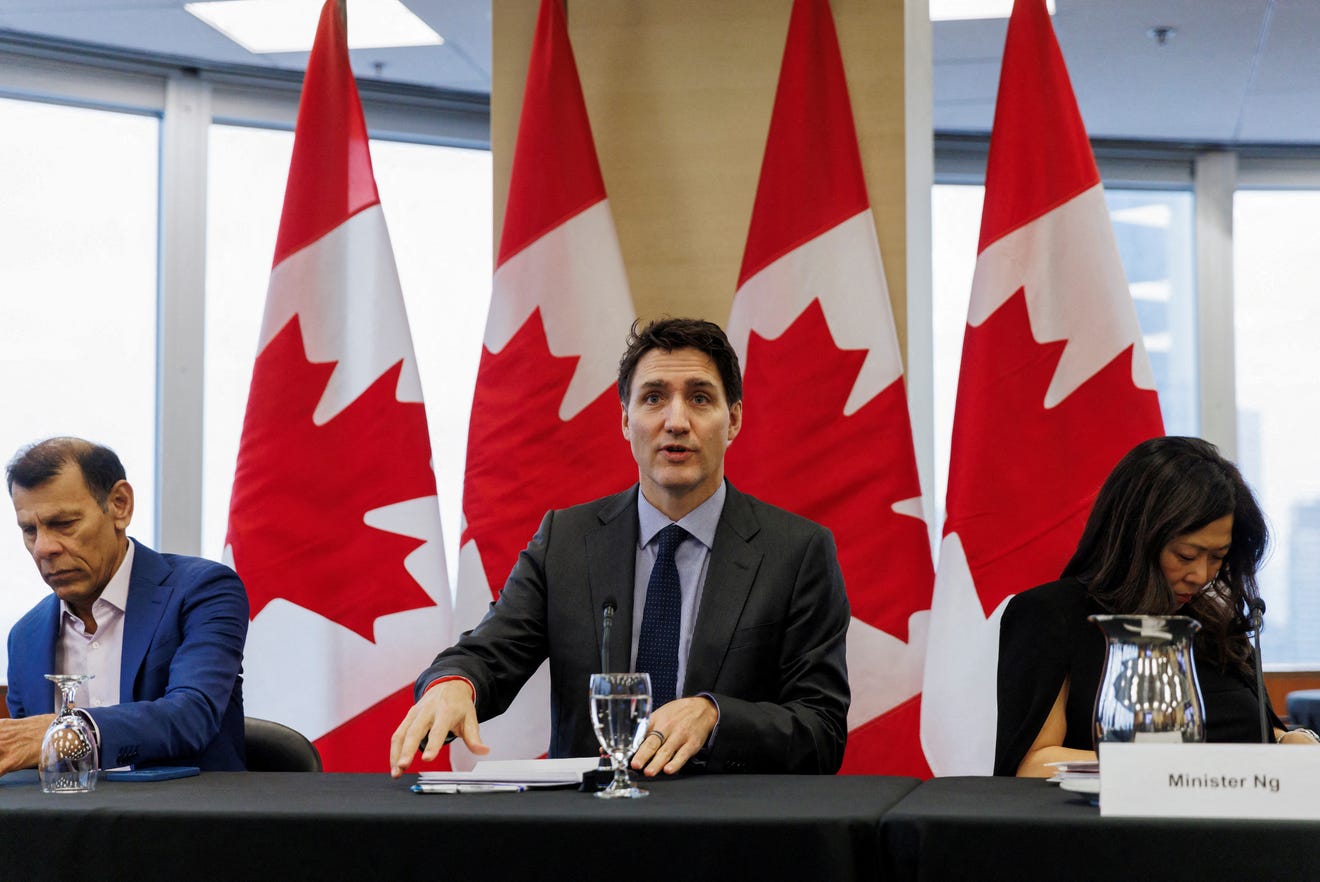Dutch Public Opinion: Resistance To EU Retaliation Against Trump Tariffs

Table of Contents
The imposition of Trump-era tariffs ignited intense debate within the European Union, particularly concerning retaliatory measures. This article analyzes Dutch public opinion on the EU's response to these tariffs, exploring the reasons behind the resistance to retaliatory actions and their broader implications for transatlantic relations. We will delve into the factors contributing to this sentiment and its potential consequences, examining how Dutch anxieties shaped the national response to this critical trade dispute.
Economic Concerns Driving Dutch Opposition
The Dutch economy, heavily reliant on exports, harbored significant fears regarding the potential consequences of a full-blown trade war fueled by retaliatory tariffs. This anxiety significantly shaped Dutch public opinion on EU-US trade disputes.
Fear of Negative Economic Impact
Retaliatory tariffs posed a considerable threat to the Dutch economy. The potential negative impacts were a major factor in shaping Dutch public opinion on EU-US trade disputes.
- Retaliatory tariffs could severely harm Dutch agricultural exports, particularly to the US. The Netherlands is a significant exporter of agricultural products, and the loss of the US market would have had devastating consequences for many Dutch farmers and businesses. This fear was widely reported in Dutch media and fueled public concerns.
- Dutch businesses worried about reduced competitiveness and job losses due to higher import costs. Increased import costs from the US, resulting from both initial tariffs and potential retaliatory measures, threatened the profitability of many Dutch companies. This led to anxieties about job security and economic stability.
- Economic models predicted a significant negative impact of retaliatory tariffs on the Dutch GDP. Numerous economic analyses projected a considerable contraction in the Dutch GDP if the EU engaged in a full-scale trade war with the US. These projections further strengthened public resistance to retaliatory measures.
Dependence on US Markets
The Dutch economy is deeply intertwined with the US market. This dependence fueled anxieties about the consequences of retaliatory tariffs.
- Case studies of Dutch companies significantly affected by the tariffs demonstrate the vulnerability of the Dutch economy. Several companies, particularly in sectors like agriculture and manufacturing, publicly expressed their concerns about the impact of tariffs, highlighting the real-world consequences of the trade dispute.
- Statistics reveal the substantial volume of Dutch exports to the US, underscoring the economic dependence. A significant portion of Dutch GDP relies on trade with the US, making the country particularly vulnerable to disruptions in this trade relationship. This dependence was a key factor in shaping public opinion against EU retaliation.
- The potential disruption to supply chains posed a further threat to the Dutch economy. Many Dutch businesses rely on imports from the US, and disruptions in these supply chains could have had significant knock-on effects throughout the economy. This supply chain vulnerability exacerbated fears and strengthened resistance to trade war escalation.
Public Sentiment and Political Landscape
Understanding Dutch public opinion on EU-US trade disputes requires analyzing both public sentiment and the political response.
Public Opinion Polls and Surveys
Numerous public opinion polls and surveys conducted in the Netherlands provide valuable insights into public sentiment regarding EU trade policy toward the US.
- Data from public opinion polls often reflected a significant level of public support against EU retaliation. These polls consistently showed that a majority of the Dutch public opposed retaliatory measures, even when the EU suggested such measures were necessary.
- Comparisons with other EU member states revealed that Dutch public opinion was relatively more resistant to retaliation. The Netherlands seemed to exhibit stronger reservations about retaliatory measures compared to some other EU nations, highlighting a unique national perspective.
- Media coverage played a crucial role in shaping public opinion, often focusing on the potential economic downsides of a trade war. Negative media portrayals of the potential economic consequences of retaliatory tariffs undoubtedly influenced public sentiment against such measures.
Political Divisions and Government Response
The Dutch government's stance on retaliatory tariffs and its interaction with EU-level decision-making processes are also critical aspects of understanding Dutch public opinion on EU-US trade disputes.
- Analysis of parliamentary debates and government statements reveals a cautious approach to retaliation. The Dutch government consistently expressed concerns about the potential economic consequences of retaliatory tariffs, advocating for a more conciliatory approach.
- Domestic political pressures influenced the Dutch government's position, making it sensitive to public opinion. Aware of the public's resistance to retaliation, the Dutch government steered clear of any measures that might have been seen as overly aggressive.
- The role of lobbying groups representing various economic sectors also influenced the government’s position. Business lobbies actively worked to influence government policy, emphasizing the potential negative consequences of a trade war on their members and the national economy.
Long-Term Implications for EU-US Relations
The Dutch resistance to EU retaliation against Trump-era tariffs had significant implications for transatlantic relations.
Impact on Transatlantic Cooperation
The Dutch stance, while reflecting national interests, also impacted the broader EU-US relationship.
- The resistance to retaliation potentially damaged transatlantic trust and cooperation. The Dutch position could have been perceived as undermining the EU's unified approach to trade disputes, potentially eroding trust among member states and with the US.
- The episode may have had implications for future trade negotiations between the EU and the US. The reluctance of some member states, including the Netherlands, to engage in aggressive retaliatory measures may have set a precedent for future negotiations, impacting the EU's ability to negotiate from a position of strength.
- The Dutch experience could negatively affect the EU’s international standing, suggesting internal divisions and hesitancy in facing major trade disputes. This could weaken the EU's bargaining power in future trade negotiations with other countries.
Lessons Learned for Future Trade Disputes
The Dutch experience offers valuable lessons for future trade disputes and EU policy-making.
- Improving communication and transparency in EU trade policy is crucial for better engagement with national stakeholders. A more transparent and communicative approach would help to ensure that national concerns are adequately addressed during policy formulation.
- Better engagement with national stakeholders, including businesses and civil society organizations, is essential. This would allow for a more nuanced understanding of national interests and help to prevent situations where national concerns are overlooked.
- Strategies for mitigating the impact of trade disputes on national economies are essential for future trade negotiations. Developing more robust economic resilience strategies could help to reduce the vulnerabilities of individual member states during future trade disputes.
Conclusion
This article explored the significant resistance within Dutch public opinion to the EU's potential retaliatory measures against Trump-era tariffs. Economic anxieties, coupled with the political landscape, shaped a national sentiment against actions that could negatively impact the Dutch economy and its relationship with the US. Understanding the nuances of Dutch public opinion on EU-US trade disputes is crucial for navigating future transatlantic relations. Further research into the nuanced perspectives of different stakeholders is needed to inform effective trade policy. Continue to explore the complexities of Dutch public opinion on EU-US trade disputes for a more complete understanding.

Featured Posts
-
 Trumps Middle East Engagement Winners And Losers
May 18, 2025
Trumps Middle East Engagement Winners And Losers
May 18, 2025 -
 Has Your Dream Renovation Turned Into A Nightmare A House Therapist Might Be The Answer
May 18, 2025
Has Your Dream Renovation Turned Into A Nightmare A House Therapist Might Be The Answer
May 18, 2025 -
 Snl Weekend Update Analysis Of Audience Response To Ego Nwodim
May 18, 2025
Snl Weekend Update Analysis Of Audience Response To Ego Nwodim
May 18, 2025 -
 Will Trumps 30 Tariffs On Chinese Goods Last Until 2025
May 18, 2025
Will Trumps 30 Tariffs On Chinese Goods Last Until 2025
May 18, 2025 -
 Is Doom The Dark Ages Right For You A Look At Gameplay And Appeal
May 18, 2025
Is Doom The Dark Ages Right For You A Look At Gameplay And Appeal
May 18, 2025
Latest Posts
-
 1 0 Victory For Angels Sorianos Masterful Pitching Silences White Sox
May 18, 2025
1 0 Victory For Angels Sorianos Masterful Pitching Silences White Sox
May 18, 2025 -
 Closers Name Discusses His Free Agency After Red Sox Tenure
May 18, 2025
Closers Name Discusses His Free Agency After Red Sox Tenure
May 18, 2025 -
 Free Agency Former Red Sox Closer Speaks Out
May 18, 2025
Free Agency Former Red Sox Closer Speaks Out
May 18, 2025 -
 Red Sox Closer On Free Agency His Next Move Revealed
May 18, 2025
Red Sox Closer On Free Agency His Next Move Revealed
May 18, 2025 -
 Los Angeles Angels Defeat Chicago White Sox Thanks To Moncada And Soriano
May 18, 2025
Los Angeles Angels Defeat Chicago White Sox Thanks To Moncada And Soriano
May 18, 2025
